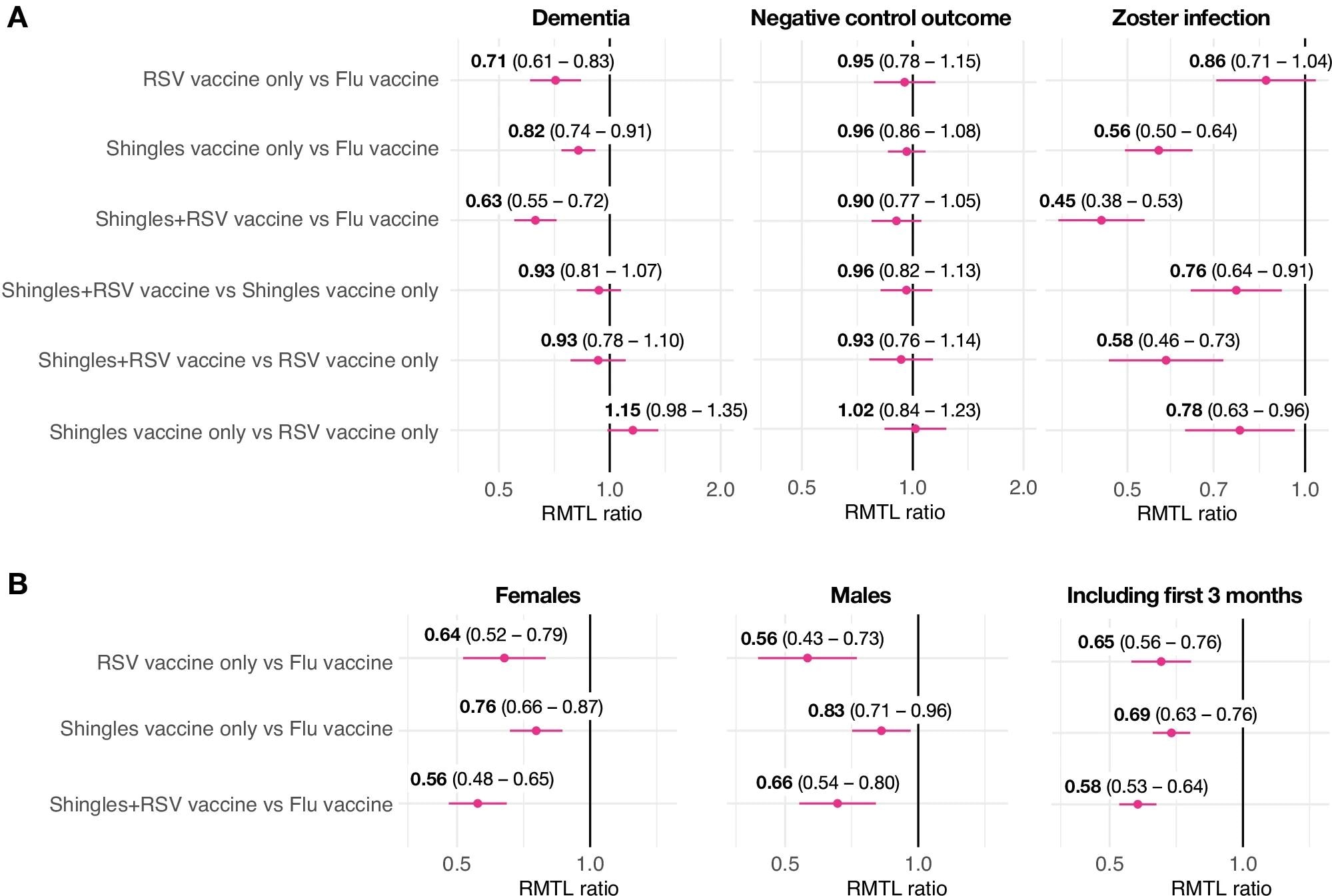New research reveals that vaccines enhanced with the AS01 adjuvant may help shield the aging brain from dementia, potentially redefining vaccine benefits beyond infectious disease protection.
 Study: Lower risk of dementia with AS01-adjuvanted vaccination against shingles and respiratory syncytial virus infections. Image Credit: ahmetmapush / Shutterstock
Study: Lower risk of dementia with AS01-adjuvanted vaccination against shingles and respiratory syncytial virus infections. Image Credit: ahmetmapush / Shutterstock
In a recent study in npj Vaccines, researchers demonstrated the short-term (18-month) protective effects of the AS01 adjuvant against the risk of subsequent dementia. This retrospective research leveraged electronic health record data (EHR) from the TriNetX US Collaborative Network, comprising more than 436,000 US adults, approximately half of whom were administered an AS01-adjuvanted vaccine, while the rest received a comparable non-AS01-adjuvanted flu vaccine.
Study findings revealed that participants administered AS01-adjuvanted vaccines (Shingrix or Arexvy) were at a significantly lower risk of dementia over the following 18 months than participants who received the flu vaccine. This result remained robust, irrespective of vaccine type or participant sex, suggesting that the protective effects may be attributed mainly to the adjuvant (AS01) and its potential neuroprotective immune responses. These findings open a new frontier in preventive neurology, potentially positioning AS01-adjuvanted vaccines as promising candidates for delaying or preventing dementia.
Background
Dementia is an umbrella term for several age-associated progressive cognitive declines that can severely hamper daily activities. Dementia represents a global public health concern, estimated to impact more than 57 million people (2021), most of whom are women. In today’s aging world, dementia prevalence continues to rise, with projections suggesting that 139 million adults will have dementia by 2050.
Unfortunately, dementia remains without a cure, with current research efforts focused on identifying its risk factors and developing effective preventive interventions. In light of this, the current research group made an intriguing discovery in their previous work: Shingrix, a shingles vaccine, was associated with a lower risk of dementia compared to live anti-varicella-zoster virus vaccines.
Researchers hypothesized that this either meant that shingles was linked to dementia, or AS01, an adjuvant added to Shingrix to improve its efficacy (no AS01 in live vaccines), was contributing to the observed reduced dementia risk. However, these findings were observational, which raises questions about whether this benefit was derived from better viral protection (against shingles or the varicella-zoster virus) or from interactions between the immune-boosting agents.
About the study
In the present study, researchers sought to isolate the effects of potential shingles-dementia associations by explicitly investigating if AS01 can alter the short-term risk of dementia diagnosis. To do this, they compared individuals who received AS01-adjuvanted vaccines with controls who received a flu vaccine devoid of AS01.
The study compared the relative risk of dementia diagnosis among members of each cohort over the subsequent 18 months. Participant data was obtained from the United States (US) TriNetX Collaborative Network. The electronic health record (EHR) dataset comprised 436,788 US adults (60+ yrs; majority between 70-73) who were administered Shingrix (n = 103,798), Arexvy (another AS01-adjuvanted RSV vaccine; n = 35,938), or a non-AS01-adjuvanted vaccine against the common flu.
Notably, the controls were sociodemographically and medically matched (66 variables) to cases via propensity score matching. Outcomes of interest included positive dementia diagnoses (International Classification of Diseases [ICD-10] codes) within the 18 months following study enrolment/vaccine administration.
Statistical analyses included the Kaplan-Meier estimator for calculating incidences of outcomes, the generalised Schoenfeld approach for assumption testing, and clinically meaningful estimations using a restricted mean time lost (RMTL) model. The primary statistical comparisons were between these vaccine-defined cohorts, and analyses were also stratified by sex.
Study findings
The study demonstrated several compelling findings. First, AS01-adjuvanted vaccines showed impressive short-term (18 months) protective effects against the risk of dementia. Participants who received Arexvy showed a 29% lower risk of dementia compared to controls, while those who received Shingrix showed an 18% reduction. Those who received both vaccines saw a 37% lower risk.
Notably, the protective impacts of these vaccines were statistically indistinguishable, strengthening support that the AS01 adjuvant, the only commonality between the vaccines, is a plausible explanation for the observed protective effect. Independent laboratory studies bolster this idea, though the paper's authors note that the exact mechanisms remain speculative. They highlight that AS01 activates innate immune cells, such as microglia, thereby enhancing pathogen clearance and reducing inflammation processes implicated in Alzheimer’s disease and the risk and progression of dementia.
Interestingly, the authors report a key limitation that may mean the protective effect is even stronger than observed. The RSV vaccine group likely included some patients who received a non-AS01 vaccine, suggesting the true impact of the AS01-adjuvanted vaccine (Arexvy) may be underestimated.
In contrast, the hypothesized anti-viral benefits of these vaccines on dementia risk (and by extension, the potential associations between the diseases and dementia) remain unlikely. These results remained robust following sensitivity testing and adjustments for vaccine type and sex. However, the authors stress that, because the study is observational, it reveals that unmeasured confounding factors may influence an association rather than a proven causal link, and the findings.
 A. Association between AS01-adjuvanted vaccines and risk of dementia, negative control outcome, and zoster infection. Each dot and bold number represent the ratio of restricted mean time lost (RMTL) for the comparison between two cohorts, while horizontal lines and numbers in brackets are 95% confidence intervals. RMTL ratios below 1 indicate that the risk is lower in the first cohort (e.g., recipients of the RSV vaccine on the first line) than in the second (e.g., recipients of the flu vaccine). B. Associations between AS01-adjuvanted vaccines (compared to flu vaccine) and risk of dementia in females, males, and in the cohorts including people who developed dementia within the first 3 months post-vaccination.
A. Association between AS01-adjuvanted vaccines and risk of dementia, negative control outcome, and zoster infection. Each dot and bold number represent the ratio of restricted mean time lost (RMTL) for the comparison between two cohorts, while horizontal lines and numbers in brackets are 95% confidence intervals. RMTL ratios below 1 indicate that the risk is lower in the first cohort (e.g., recipients of the RSV vaccine on the first line) than in the second (e.g., recipients of the flu vaccine). B. Associations between AS01-adjuvanted vaccines (compared to flu vaccine) and risk of dementia in females, males, and in the cohorts including people who developed dementia within the first 3 months post-vaccination.
Conclusions
This real-world study contributes to the growing body of evidence that AS01-adjuvanted vaccines may protect brain health beyond their intended viral targets. With both RSV and shingles vaccines showing significant dementia risk reduction (29% for RSV and 18% for shingles), their shared efficacy, rather than specific disease prevention, appears key to their holistic dementia-preventive effects.
The findings strongly support the need for future randomized clinical trials to confirm these effects and test AS01 boosters for the prevention of dementia. If confirmed, we may be able to harness vaccine platforms not just for infectious disease control, but as tools to delay or prevent cognitive decline, thereby representing a significant paradigm shift in preventive geriatrics.
Journal reference:
- Taquet, M., Todd, J.A. & Harrison, P.J. Lower risk of dementia with AS01-adjuvanted vaccination against shingles and respiratory syncytial virus infections. npj Vaccines 10, 130 (2025), DOI -- 10.1038/s41541-025-01172-3, https://www.nature.com/articles/s41541-025-01172-3